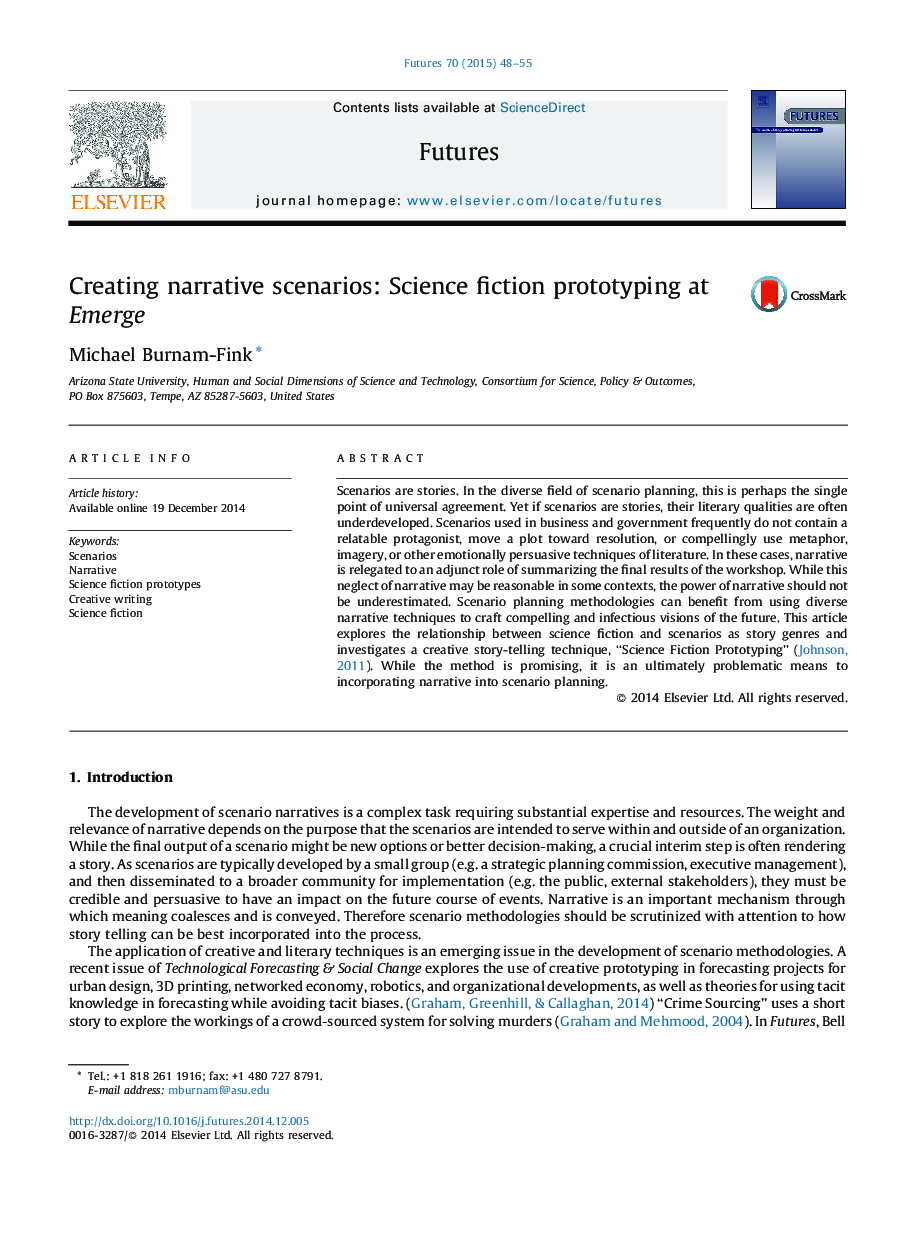| کد مقاله | کد نشریه | سال انتشار | مقاله انگلیسی | نسخه تمام متن |
|---|---|---|---|---|
| 1015456 | 1482760 | 2015 | 8 صفحه PDF | دانلود رایگان |
• Narrative presentation of scenarios is a useful way to increase reader interest and trust.
• Because scenarios are a “process method” story-telling should be incorporated in scenario creation.
• Scenarios and science fiction are related futurological genres.
• Science Fiction Prototyping is a promising method for creating narrative scenarios.
• However, Science Fiction Prototyping is very time intensive and does not sufficiently consider alternative futures.
Scenarios are stories. In the diverse field of scenario planning, this is perhaps the single point of universal agreement. Yet if scenarios are stories, their literary qualities are often underdeveloped. Scenarios used in business and government frequently do not contain a relatable protagonist, move a plot toward resolution, or compellingly use metaphor, imagery, or other emotionally persuasive techniques of literature. In these cases, narrative is relegated to an adjunct role of summarizing the final results of the workshop. While this neglect of narrative may be reasonable in some contexts, the power of narrative should not be underestimated. Scenario planning methodologies can benefit from using diverse narrative techniques to craft compelling and infectious visions of the future. This article explores the relationship between science fiction and scenarios as story genres and investigates a creative story-telling technique, “Science Fiction Prototyping” (Johnson, 2011). While the method is promising, it is an ultimately problematic means to incorporating narrative into scenario planning.
Journal: Futures - Volume 70, June 2015, Pages 48–55
